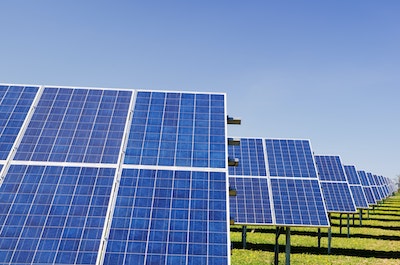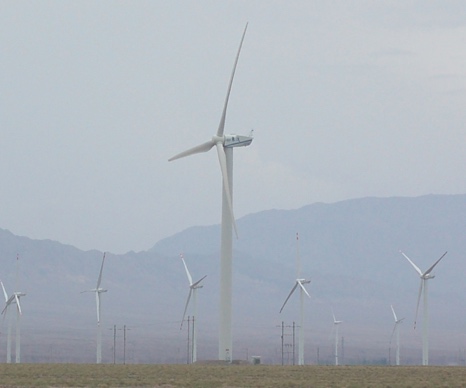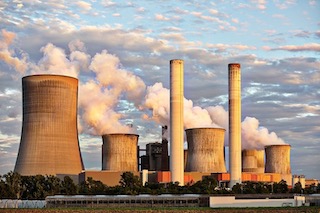The Davidson Lab focuses on the engineering implications and institutional conflicts inherent in deploying low-carbon energy at scale. We have particular interests in understanding the political systems of Asia (with a focus on China and India) as well as the western U.S. Our research topics include renewable resource assessments, power system operations, and political economy of markets. Read more about the lab.
We are recruiting across all levels–PhD, MS and undergraduate students, and staff researchers!
Please see the academic programs and mentoring opportunities page for more information.
News
Page updated Feb 1, 2024 with new application link.
[Read More]
Job Opening: Staff Research Associate on China's electricity markets
Join a research team focusing on data collection and organization, modeling analysis, and writing on China’s electricity market developments and aligning market reforms with carbon neutrality
DESCRIPTION
DEPARTMENT OVERVIEW:
[Read More]
Job Opening: Research on China Power Grid
Join a dynamic team modeling the engineering implications of large amounts of renewable energy and the effects of different electricity market designs on carbon emissions in China
China has the largest power grid in the world, and it is rapidly changing to accommodate to low-carbon goals. The Research Assistant will join a dynamic team modeling the engineering implications of large amounts of renewable energy and the effects of different electricity market designs on carbon emissions in China....
[Read More]
Job Opening: Research on China-India Clean Energy Trade
Trade can help spur climate mitigation but is also a source of geopolitical tension
This project hosted at the School of Global Policy and Strategy (co-led by Profs Davidson and Garg) will look at the global trade in clean energy technologies with a focus on the China-India bilateral relationship. Trade can help spur climate mitigation but is also a source of geopolitical tension due...
[Read More]
Quantifying the cost savings of global solar photovoltaic supply chains
Helveston, J.P., He, G., & Davidson, M.R. Nature.
Achieving carbon neutrality requires deploying renewable energy at unprecedented speed and scale, yet countries sometimes implement policies that increase costs by restricting the free flow of capital, talent and innovation in favour of localizing benefits such as economic growth, employment and trade surpluses. Here we assess the cost savings from...
[Read More]
Risks of decoupling from China on low-carbon technologies
Davidson, M. R., Karplus, V. J., Lewis, J. I., Nahm, J., & Wang, A. Science.
China plays, and will likely continue to play, an indispensable role in research, development, and demonstration (RD&D) and manufacturing of low-carbon technologies that are necessary to address climate change. For example, China’s scale-up capabilities that are underpinned by manufacturing process improvements, supply chain optimization, and deep government support have contributed...
[Read More]
Lab alumni researching China's energy markets at RAP and Lantau Group
Will Gao, Sonia Tan
Lab alumni have taken research positions at leading organizations on China’s energy markets.
[Read More]
Undergraduate lab researchers head to CMU, McKinsey, and Georgetown
Jiahe Feng, Arjun Sawhney, Yunhan Zhang
Limitations of reanalysis data for wind power applications
Davidson, M. R., Millstein, D. Wind Energy.
Wind energy resource estimates commonly depend on simulated wind speed profiles generated by reanalysis or weather models due to the lack of long time series measurements with sufficient coverage at relevant heights (roughly 90 m above ground). However, modeled data, including reanalyses, can be noisy and display a wide range of...
[Read More]
Geodata v0.1 package launched
Open-source python package that helps to wrangle high-dimensional weather model data and diverse geospatial datasets to address questions of renewable energy planning and siting (and more)
Geodata is a Python library of geospatial data collection and “pre-analysis” tools. Geospatial and gridded datasets of physical variables are ubiquitous and increasingly high resolution. Long time-series gridded datasets can be generated as part of earth system models, and due to their geographic coverage they can have wider applications, including...
[Read More]
Static Electricity: Institutional and Ideational Barriers to China’s Market Reforms
Davidson, M. R., Pearson, M. M. Studies in Comparative International Development.
China’s “economic juggernaut” is often noted to have arisen from successful market reforms carried out in the context of high state capacity. In contrast, we demonstrate that crucial reforms to replace central planning with markets have stalled as a result of major barriers of two types: institutional and ideational. Focusing...
[Read More]
Testimony before the U.S-China Economic and Security Review Commission
China's Energy Plans and Practices
Executive Summary On the road to becoming the world’s largest clean energy consumer, China has embraced a range of policies, including both demand-pull and supply-push, to shape energy markets. Resulting integration challenges such as high levels of curtailment are a symptom of both technical and institutional barriers, and will be...
[Read More]
Decarbonization Decision-making in the Western United States Under Political Uncertainty
Princeton University | Center for Policy Research on Energy and the Environment
Davidson will discuss his ongoing work examining the power system decarbonization landscape across the 11 states of the western United States under political uncertainty.
[Read More]
PhD Student Recruitment: Modeling China's Decarbonization Pathways
MAE PhD student recruitment
Prof. Michael Davidson in the Department of Mechanical and Aerospace Engineering (MAE) and the School of Global Policy and Strategy (GPS) at UC San Diego is seeking to recruit an MAE PhD student to join the Davidson Lab to model China’s decarbonization pathways starting in Fall 2022.
[Read More]
China’s Power Outage: The Real Reasons Behind Beijing’s Energy Crisis
Davidson, M. Foreign Affairs.
In the protracted, hope-filled run-up to COP26, the long-postponed UN Climate Change Conference that began in Glasgow on October 31, U.S. Special Presidential Envoy for Climate John Kerry called the conference the world’s “last, best chance” of avoiding a climate emergency. In July, COP26 President Alok Sharma had declared that...
[Read More]
Lab Members Present Research at USAEE/IAEE North American Conference and Energy Policy Conference
Topics include renewable energy resource mapping and energy equity
Lab members Arjun Sawhney and Isac Lee, and non-presenting author Jeffrey Feng presented their research at the USAEE/IAEE North American Conference 2021 and the Energy Policy Conference 2021 this fall.
[Read More]
The Challenges of Coal Phaseout: Coal Plant Development and Foreign Finance in Indonesia and Vietnam
Gao, X., Davidson, M., Busby, J., Shearer, C., Eisenman, J. Global Environmental Politics.
Global coal use must be phased out if we are to minimize temperature increases associated with climate change. Most new coal plants are being built in the Asia Pacific and rely on overseas finance, with Indonesia and Vietnam the leading recipients. However, the politics of coal plant finance are changing,...
[Read More]
Podcast: Can China meet its ambitious emissions targets?
Sinica supchina.
On the Sinica Podcast, Kaiser chats with Michael Davidson, a leading scholar on China’s environmental policy, who holds joint appointments at UC San Diego as an assistant professor at the School of Global Policy and Strategy and the Jacobs School of Engineering. Michael unpacks recent announcements out of Beijing, including...
[Read More]







